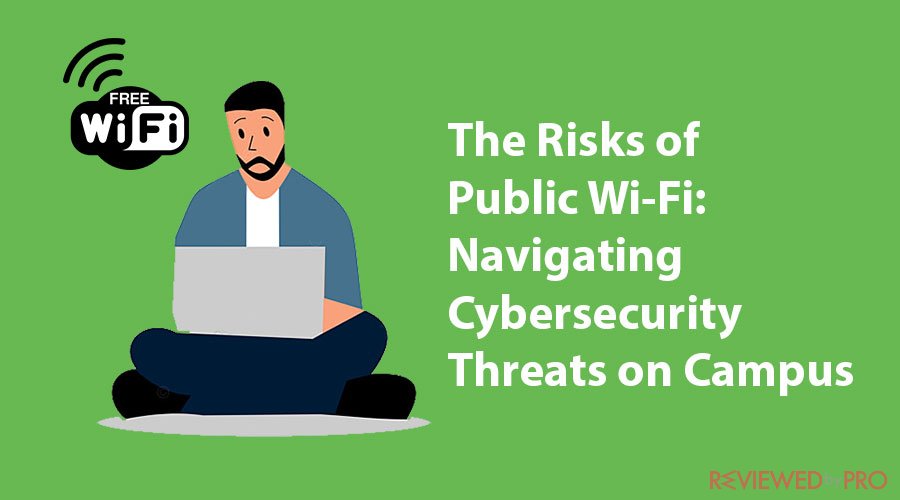
Stay protected on the web by following the recommendations for avoiding the dangers of public WiFi. Take proactive steps to safeguard yourself and your data.
The Dangers of Using Public WiFi on Campus (and Ways to Avoid Them)
You are sitting in your campus cafe, scrolling through essay assignments on your laptop. Then you notice that an open WiFi network is accessible, and you immediately connect to it without even thinking twice.
You’ve probably done this more than once on campus. What harm could possibly come from using free public WiFi to create an essay for me, right?
Wrong! Using open WiFi networks is a recipe for disaster. They are basically honeypots for hackers. You need to be aware of the dangers of public WiFi networks, especially those without passwords.
In this article, we’ll discuss the dangers of using public WiFi. You will also learn tips to protect yourself if you ever need to use these open networks.
Man-in-the-middle (MITM) attacks
As the name suggests, a man-in-the-middle attack involves an unauthorized third-party gaining access to your system. The hacker could stay in your system, monitoring your incoming and outgoing communication until it is time to strike.
This is how a MITM cyber attack works: when you connect to a public WiFi, your device sends and receives data with the network and any websites you use. Hackers then take advantage of this vulnerability to cause harm or steal sensitive information using specialized software.
Malware attacks
Malware is software intended to damage or exploit devices and open networks, usually by stealing data or taking over a device. Hackers can trick you into installing malware on your device.
For instance, they could send you an email to download a software program—usually an antivirus. Once you download it, they can take over your device until you pay.
Also, you need to conduct research whenever you seek academic support. Always essay writing services reviews to ensure they have a clean track record of protecting users’ sensitive data.
Identity theft
Hackers can gain unauthorized access to your online accounts and social security number — which will give them enough ammo to steal your identity. Without a VPN to protect you, they can easily get sufficient information about you to throw targeted attacks or phishing scams.
Even if they do not outrightly steal your identity, they can still spy on your online activities. They can also track your recent location, obtain personal details, and access your financial data.
Ransomware attacks
In a ransomware attack, the hacker will use malware to encrypt your files, rendering them inaccessible once they have gained access. One of the most dangerous aspects of this attack is the speed with which ransomware can spread across a network and corrupt multiple devices.
If massive companies like Medibank are susceptible to ransomware, students on campus don’t stand a chance. So if you see an open WiFi in the library or cafe, stay away from it.
Session hijacking
Session IDs monitor your online activities; one is assigned to you anytime you log in to a webpage.
You know those annoying cookies you have to accept? That’s where the session IDs are stored. This ID is sent to the website anytime you make a request and is kept in a cookie on your device.
When you log out of the site, the session ID is deleted too. However, a hacker can hijack your session if they can intercept it while you are using a public network. From there, they can imitate you, access your accounts, and read your messages.
Stealing your passwords
Everyone stores passwords, whether in browsers, apps, or emails. These passwords should be private, but when you use public WiFi networks, you make them fair game for hackers.
How does this happen? A hacker can run a simple command to gain access to all accounts and passwords on every device connected to the network. Not even the latest antivirus software can protect you from this breach.
How to stay safe when using public WiFi
Before connecting to a public WiFi, here are some safety tips to remember.
- Turn off the auto-connection on all your devices.
- While on public WiFi, turn off the file-sharing option of your device.
- Use a best VPN for public wi-fi. It masks your IP and data in transit.
- Do not access personal sensitive information on a public network.
- When connecting to public Wi-Fi using a laptop, keep your firewall active.
- Install the most current antivirus software version on your device.
- Use multi-factor authentication (MFA) when logging into websites with personal information.
- Be mindful of those around you and aware of your surroundings.
- Never leave your smartphone, tablet, or laptop unattended.
- Do not connect to a network requiring additional software or browser extensions.
Conclusion
While public WiFi may be convenient, it could put you at significant risk. Cybercriminals are always searching for means to take advantage of flaws in open WiFi networks, placing both your personal data and sensitive information at risk.
You can reduce your chances of falling victim to cyberattacks by taking precautions. Avoid sensitive transactions on public WiFi, use only the best assignment services with encrypted firewalls, and keep your devices updated.




